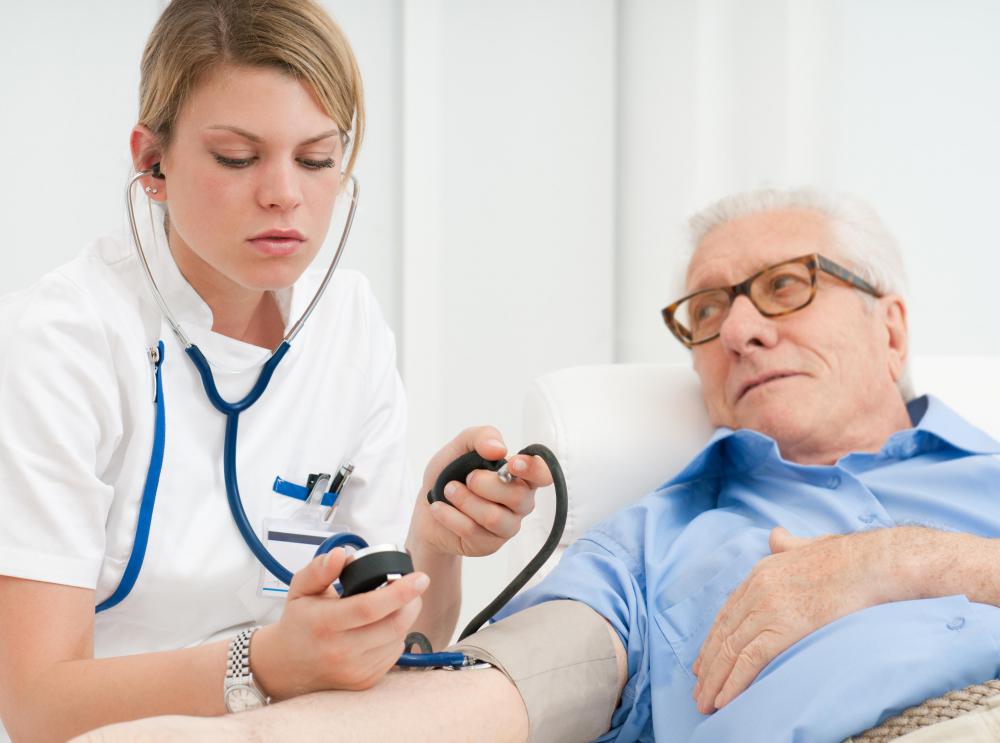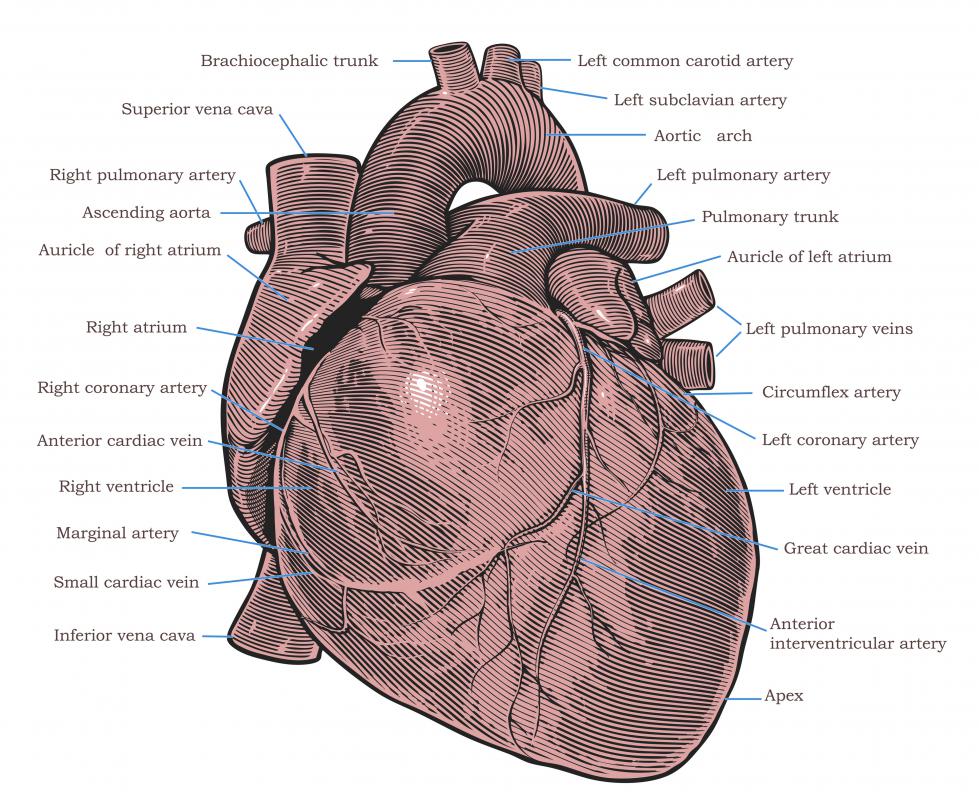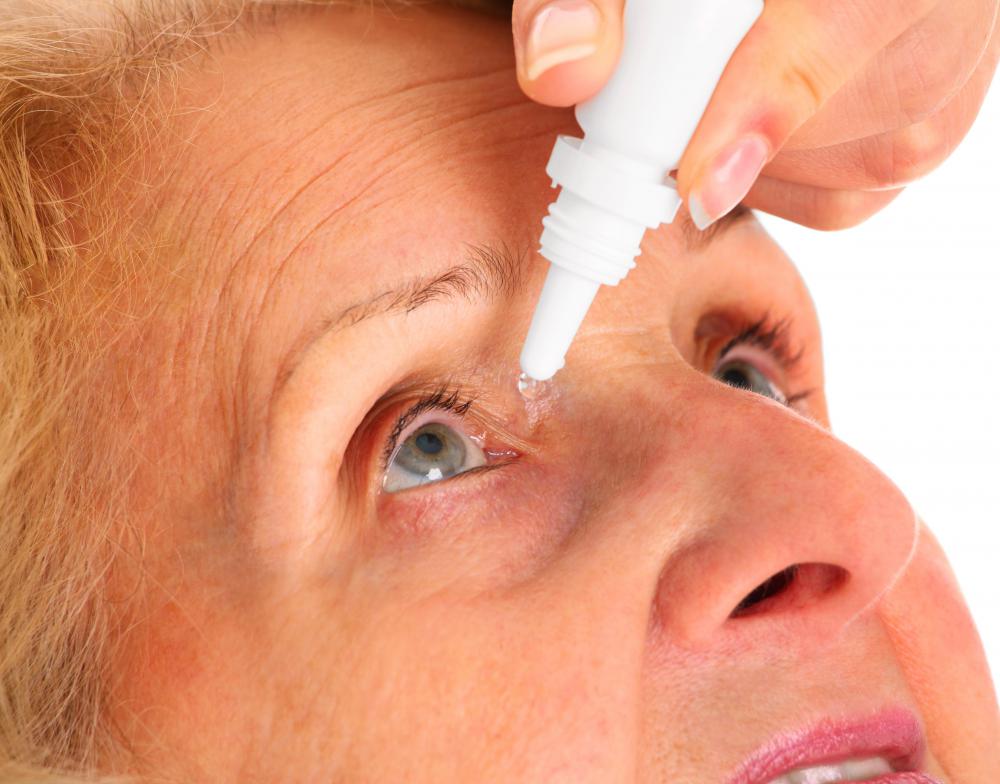At TheHealthBoard, we're committed to delivering accurate, trustworthy information. Our expert-authored content is rigorously fact-checked and sourced from credible authorities. Discover how we uphold the highest standards in providing you with reliable knowledge.
What Is the Difference between Epinephrine and Atropine?
The two drugs epinephrine and atropine both affect the portion of the nervous system that regulates automatic behaviors such as heart rate, breathing rate, and digestion, known as the autonomic nervous system. Some of the effects of these medications even overlap, such as increasing the heart rate after dosing. They have many important differences, however, that can determine their proper use in a medical setting.
Epinephrine and atropine both exert functions in the autonomic nervous system, but they do so through different subsets of this system. In one subset called the sympathetic nervous system, epinephrine activates cells known as neurons within the system, helping to trigger the so-called "fight or flight" reaction. The parasympathetic nervous system works toward opposite purposes, such as lowering blood pressure and heart rate. Atropine works to block the normal actions of neurons in the parasympathetic branch, meaning that it, too, can increase the heart rate, albeit through a different path than the one used by epinephrine.

Differing effects on the body lead to unique clinical uses for epinephrine and atropine. Allergic reactions leading to difficulty breathing and other major problems can be reversed with injections of epinephrine. This drug may also be used to reverse cardiac arrest. Atropine cannot re-start the heart, but it is used to reverse a low heart rate, known as bradycardia. Certain procedures involving the eyes also utilize atropine eye drops, since these can cause the pupil to dilate.

All medications have the potential to cause some side effects, and these effects are another set of differences between epinephrine and atropine. Many of the possible side effects of epinephrine are related to over stimulation, such as nervousness, insomnia, tachycardia, or elevated heart rate, and tremors. Some of these effects are similar to those caused by atropine, but atropine has a larger chance of increasing sweating, skin flushing, and mental side effects. These mental side effects can include confusion, hallucinations, and even delusions, where an individual will respond to stimuli that is not really there, forgetting that it is being caused by a drug.

Drug interactions are another way that epinephrine and atropine differ substantially. Heart medications and drugs that affect blood pressure, such as beta blockers, can potentially be fatal when taken with epinephrine. With atropine, there are fewer side effects that could lead to death, but many compounds, including antihistamines like diphenhydramine, respiratory medications, and diuretics, which cause urination, can make atropine's side effects much more extreme.
AS FEATURED ON:
AS FEATURED ON:




















Discussion Comments
The military uses atropine for emergency situations. There is something called an AtroPen that military personnel can inject themselves with if they are under a gas attack and become poisoned from the gas. I think it could be used for other types of poisoning too, but it's generally used for nerve gas and insecticide poisoning.
There is a similar product for general public use with epinephrine called an EpiPen. My nephew uses this for his allergies. His parents always keep one with them because he once had a severe allergic reaction to something he ate.
I'm not a doctor so I couldn't say for sure, but I think atropine is a stronger adrenaline inducing drug than epinephrine. I think epinephrine is better for minor reactions, whereas atropine is probably better for more severe, life-threatening ones.
@feruze-- I've been given epinephrine before for a severe allergic reaction and my sister is a nurse and I've asked her about this as well.
From what she's told me, I think we can't really say that one is better. Both work well, but one might be more effective in certain situations than others. My sis says that generally epinephrine works better than atropine for cardiac arrest. But there have been times where they used both to help keep the patient's heart beating.
Some ER ambulances don't even carry epinephrine and just use atropine for cardiac arrest and bradycardia. So I think that both are effective, it's just that some medical professionals prefer to use one over the other. Or sometimes a patient doesn't respond to one, so they try the other one or combine the two as a treatment.
I'm studying this subject for my exam right now and I think I understand the difference between epinephrine and atropine. I know that they do the same thing, increase heart rate, but through different ways.
My book and this article both mentioned that atropine is safer and has less side effects than epinephrine. My book also mentions that atropine's effect lasts longer than epinephrine.
If this is the case, why do we even use epinephrine? If it is clearly better and safer, why don't we only use atropine to increase heart rate?
I'm thinking that there must be some advantages of epinephrine that atropine can't provide, right? What are those?
Post your comments